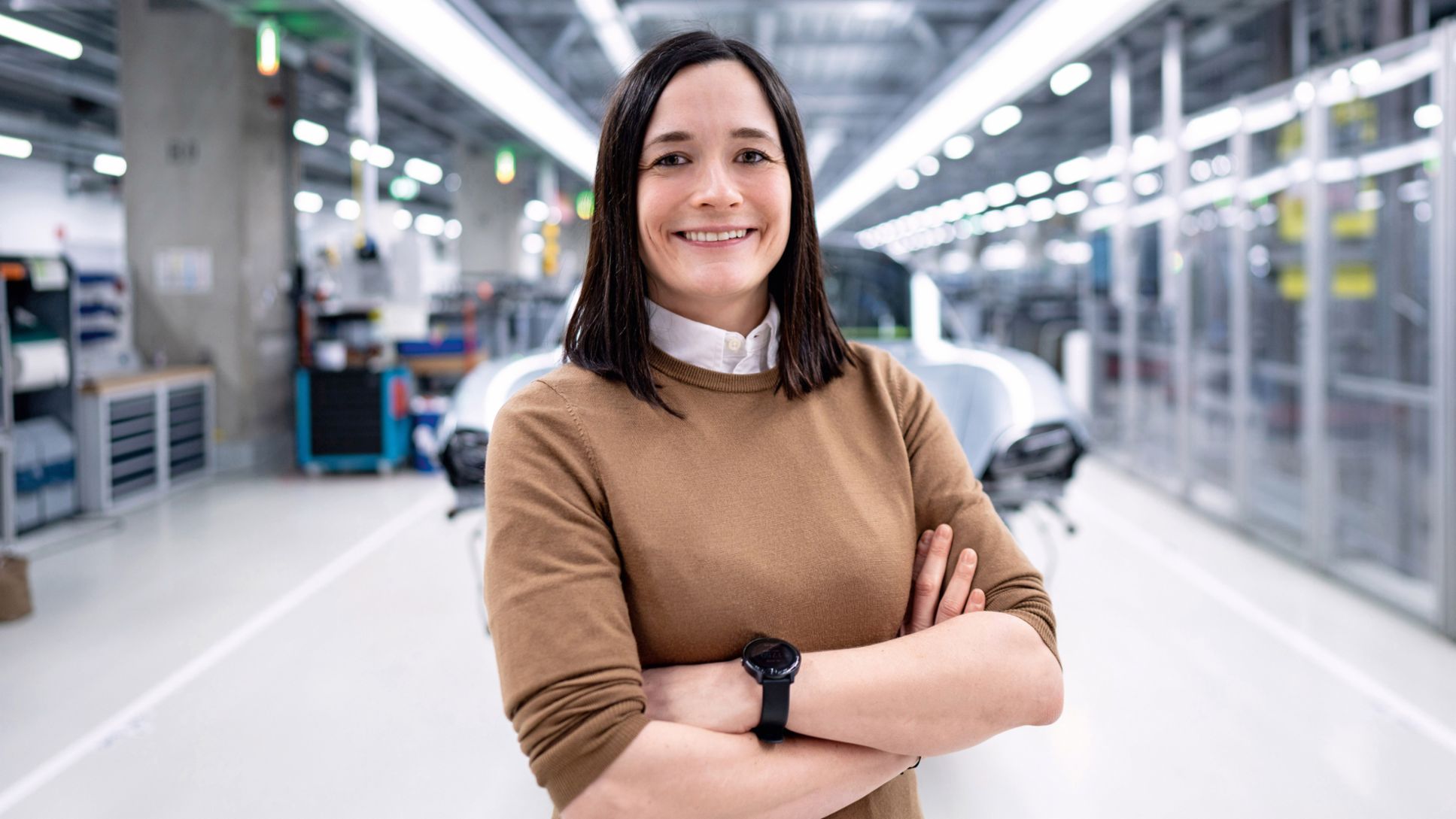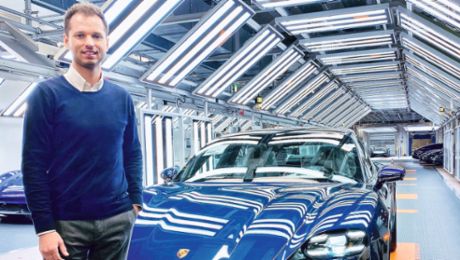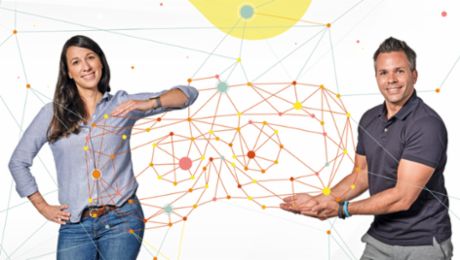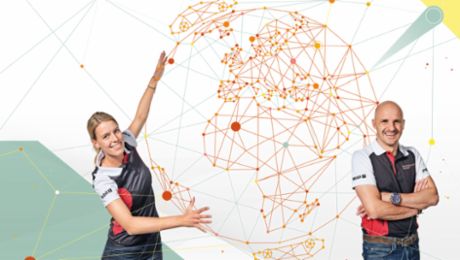You can learn at least three things from Shari Langes. First: even if you study medical informatics, you can end up working for a car maker. Second: by all means apply for a job at Porsche, even if you’re not sure the position is 100% right for you. And third: as an IT specialist and car enthusiast, you can be happy with your job even if you’re not directly involved in writing more software for the new Taycan.
Shari Shari is thirty-three years old and the youngest of three daughters in a family of doctors. “I was already interested in medicine as a kid,” she says. But she was also interested in engineering. Upon finishing high school in 2006, “I already knew I wanted to do something in IT.” She searched online for computer science programs connected with medicine, like those affiliated with business or hardware engineering. Sure enough, the Heilbronn University of Applied Sciences offers a program in medical informatics. Shari enrolled, and studied not only software development but also basic medicine. What do these two fields have in common? When developing patient-centered software, the focus has to be on people. Shari has never stopped following this principle.
“As a product owner, I identify and prioritize the needs of our colleagues and decide what to do about them, while the product team decides how to put that into practice.” Shari Langes
In 2012, Shari started her professional career as an IT business consultant at a company called Kaufland Informationssysteme. Three years later she took her first leadership position and launched new application development teams in both Germany and Bulgaria. In 2018, she joined Porsche in Zuffenhausen. “The brand has a huge appeal for a lot of applicants. For me too! I love fast cars and have a sports-car mentality on the road.”
She applied for a service manager position in the collaboration group. “The interview was a totally pleasant experience. It was immediately clear to me that the people really embrace an open-minded culture, which was great.” In the fall of 2019, Porsche created a digital workplace department with seventy-five people. The company also introduced agile work methods and product teams, each of which has its own area of responsibility. Shari is now a product owner on a six-member collaboration team. In contrast to conventional structures, the team takes a transdepartmental approach. In two-week sprints, it puts new software functions into practice. How can we simplify everyday collaboration among our Porsche colleagues? What can we as IT specialists do to support mobile and virtual work? How can we bring our international subsidiaries closer to us in a virtual setting and streamline the exchange of information? Those are just a few of the questions addressed by the collaboration product team.
“As a product owner, I identify and prioritize the needs of our colleagues and decide what to do about them, while the product team decides how to put that into practice,” she says. Do people want to work together in real time on one and the same Word document and see changes made by their coworkers right away, regardless of geographic location? We can do that! Shari’s agile unit also got mobile collaboration up and running. “There didn’t used to be any mobile apps that would let you access documents or notes on the move, but we’ve changed that,” she says. The people in her department range in age from their late twenties to early sixties, and also regularly welcome work/study colleagues. “Age plays no role; the only thing that matters is your mindset,” she says. And the focus is on people. “Often it’s enough just to listen and adjust the process a little instead of having the IT side contribute something new.”
Hot new world: Digitalization is leading to many new job descriptions. Need a few examples? A product manager meets with customers and solicits feedback. A product owner works with developers to ensure processes are executed correctly. A management scientist acts as an interface between specialized departments. A data scientist is an analyst, and a data steward monitors data quality and integrity.
In addition to her passion for informatics, Shari loves to go hiking—preferably with others as opposed to alone. “Last year a group of us went on a seven-day hike across the Alps, and I have to say when you’ve just had a strenuous climb and finally reach the top and have this fantastic view, it’s much more enjoyable on a team than alone. I’m more motivated when I’m together with other people. And if you want to achieve something really big, a team can do it a lot more easily.” A group will have more ideas and more discussions, but it will ultimately also have more and generally better solutions. Shari has been at Porsche for two years now, but the company continues to surprise her. “I was recently in the Taycan factory, and didn’t see a single speck of dust on the floor! That’s just one indication of the love that the production people put into their work. They put their heart and soul into producing these strikingly beautiful cars.”
Info
Text by Jo Berlien
Text first published in the CAMPUS Magazine.




